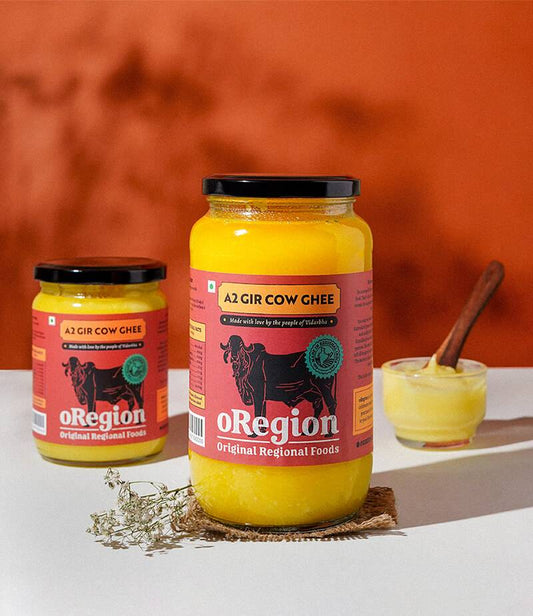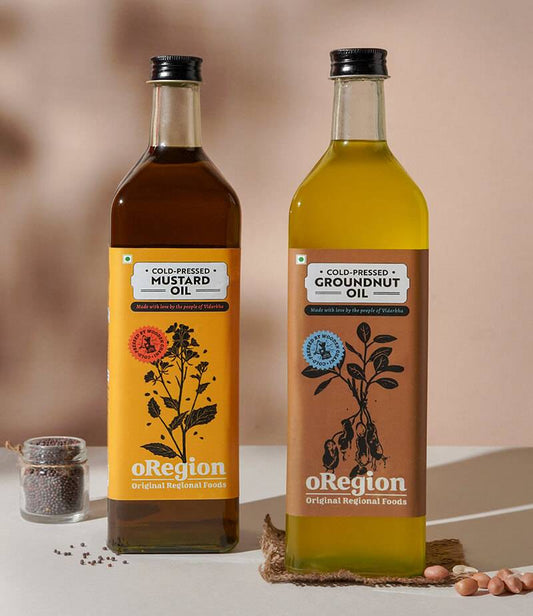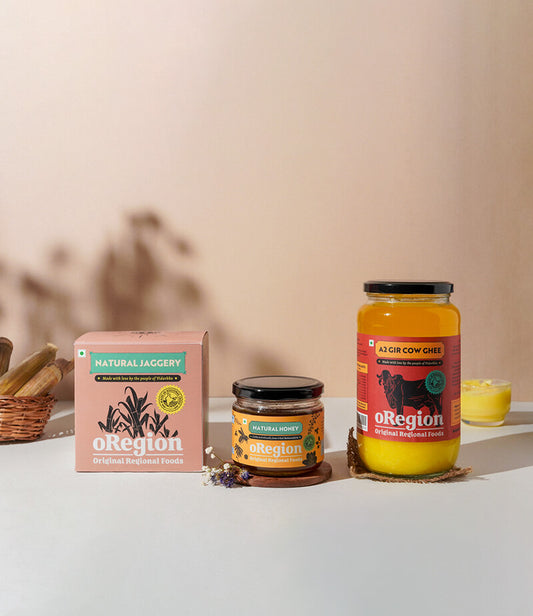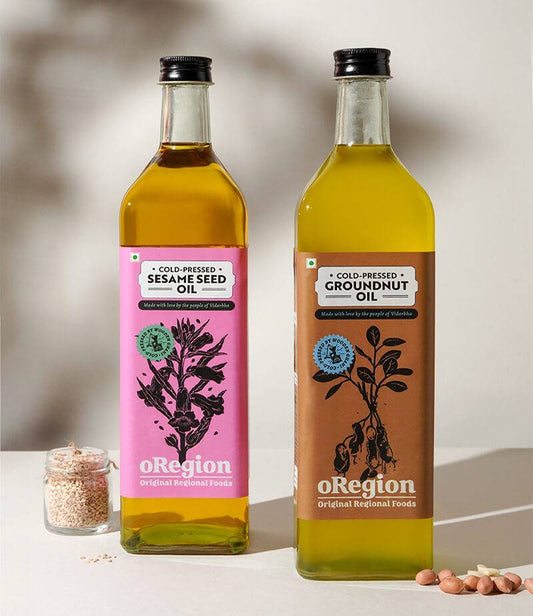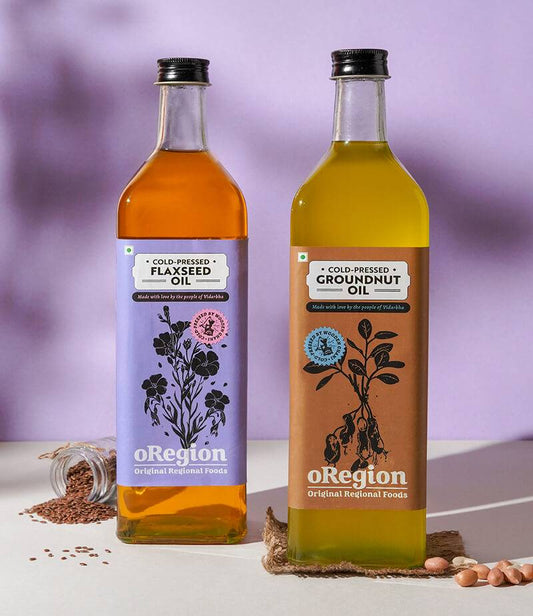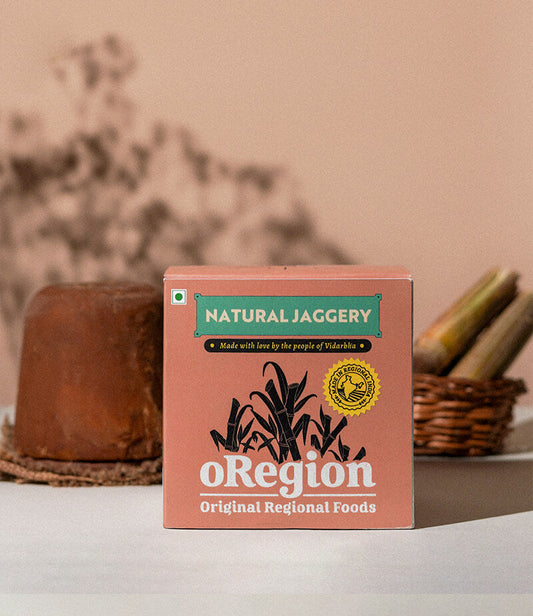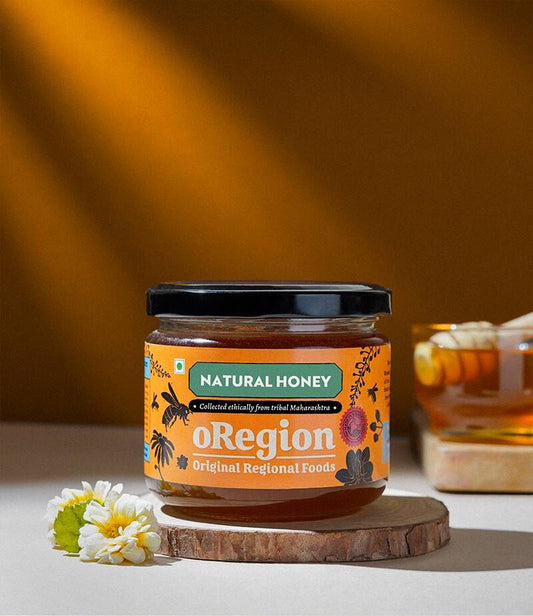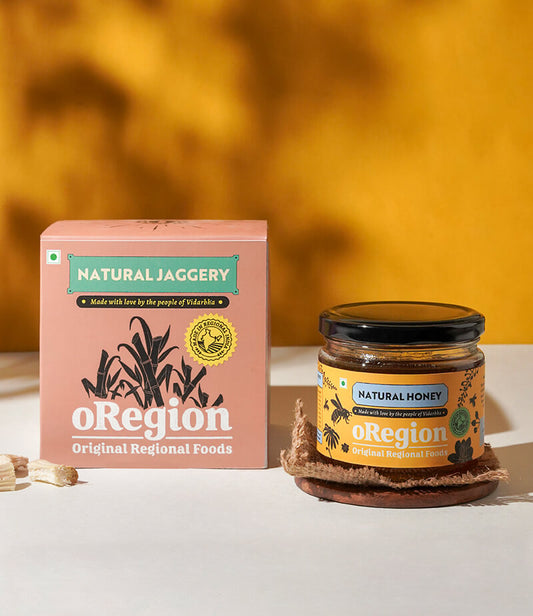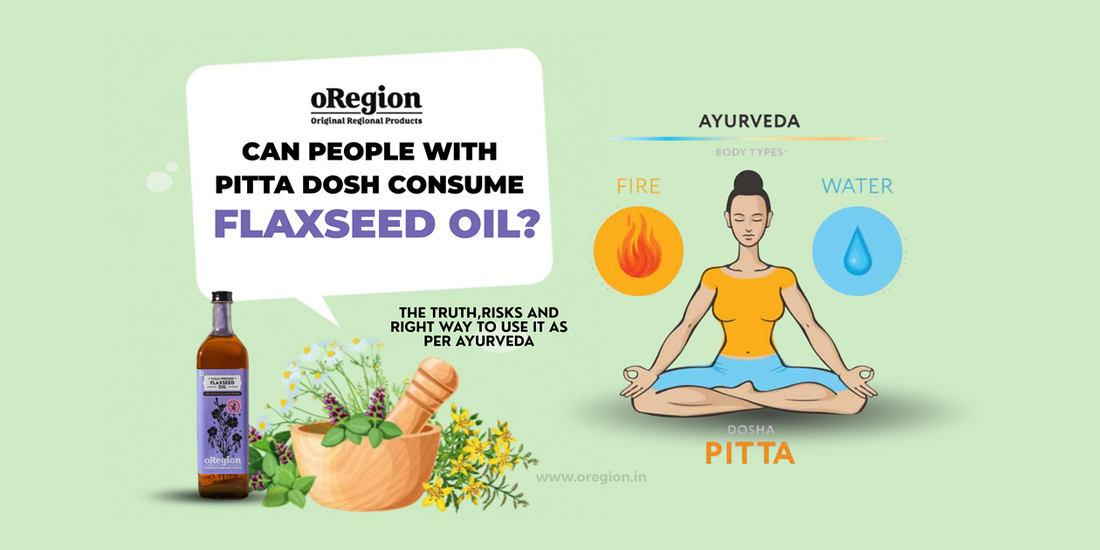
Can Pitta Dosha Take Flaxseed Oil? Ayurvedic Truth, Risks & the Right Way to Use It
By oregion foodsIntroduction — The Pitta-Flaxseed Oil Controversy
In the realm of holistic health, Ayurveda stands as a timeless guide, helping individuals harmonize their bodies according to their unique doshic constitution. Among the most debated questions in today’s wellness space is whether Pitta dosha individuals can safely consume flaxseed oil. This inquiry stems from the growing awareness of flaxseed oil benefits, especially its status as a rich plant-based source of Omega-3 Fatty Acids, but it also comes with uncertainty rooted in Ayurveda’s intricate dosha rules.
The conversation is often polarized: some say flaxseed oil is too heating, while others swear by its hormonal and skin-balancing benefits. So where does the truth lie? Can the oil from flax harmonize with the fiery nature of Pitta, or is it a recipe for imbalance?
Let’s uncover the reality through both Ayurvedic wisdom and modern nutritional science to provide a comprehensive guide for conscious consumers.
Is Flaxseed Oil Suitable for Pitta Dosha?
The quick answer is: not necessarily. While it’s true that Pitta dosha, governed by fire and water elements, is sensitive to heat, not all heating substances are harmful. The energetic qualities of foods matter, but so do factors like season, method of use, quantity, and overall health condition. This is where the discussion about flaxseed oil usage becomes nuanced—and where most online sources fall short.
Why does this topic matter for your health journey?
Understanding the compatibility of alsi seeds oil with Pitta isn’t just about dietary dos and don’ts. It’s about embracing Ayurveda as a lifestyle, where every choice supports your internal balance. With Cold Pressed Flaxseed Oil becoming a mainstream vegan Omega-3 supplement, especially for women seeking hormone regulation, its correct application is essential.
What Ayurveda Actually Teaches About Oils and Doshas
Ayurveda Isn’t About Blanket Avoidance
Ayurveda doesn’t believe in demonizing ingredients. It looks at everything through the lens of balance. Foods are evaluated based on their guna (qualities), virya (potency), vipaka (post-digestive effect), and how they interact with an individual's prakriti (constitution) and vikriti (imbalance).
Understanding the 3 Pillars: Prakriti, Vikriti, and Anupan
Prakriti (Your Natural Constitution) vs Vikriti (Current Imbalance)
If your inherent nature is Pitta (prakriti), but you're currently experiencing a Kapha imbalance (vikriti), your body may tolerate slightly heating foods better than expected. The same flaxseed oil that could cause heat-related symptoms in summer might actually help regulate metabolism in winter.
The Role of Anupan (Vehicle/Substance Used With)
Ayurveda recommends using balancing vehicles—called Anupans—to moderate the effects of potent substances. For example, flax oil when consumed with cooling carriers like coconut water, aloe vera juice, or mint chutney, reduces its heating potency while retaining its nutritional value.
Flaxseed Oil According to Ayurveda
Nature (Guna) and Energetics (Virya) of Flaxseed Oil
Flaxseed oil is slightly heated (Ushna), unctuous (Snigdha), and mildly heavy (Guru). This makes it Vata-pacifying, potentially Kapha-reducing, but it can aggravate Pitta if overused or consumed without balancing agents.
Is Flaxseed Oil Ushna (Heating)? Let’s Break It Down
Compared to oils like mustard or sesame, cold pressed flax oil has milder heating properties. This means it’s not a red-flag ingredient, but rather a “use with awareness” type of food for Pitta individuals.
Nutritional Qualities vs Ayurvedic Attributes
Modern nutrition highlights flaxseed oil benefits for female health, such as reducing PMS symptoms, improving skin elasticity, and balancing estrogen due to its lignan content and Omega-3 ALA. Ayurveda might call it heating, but science shows it has anti-inflammatory and cooling effects on a biochemical level.
Common Myths About Pitta Dosha and Oil Use
“Pitta Should Never Take Heating Oils” – A Half-Truth?
It’s more accurate to say that Pitta should avoid excessive heat, not avoid heating food. In fact, a small amount of heating oil like virgin flaxseed oil, consumed with appropriate companions, can support digestion and hormones.
How Social Media Provides the Incomplete Idea About Ayurveda
Social Media Rules vs Real Ayurvedic Guidelines
The internet is flooded with simplistic advice—“avoid heating foods if you’re Pitta”—but Ayurveda is a science of personalization. One-size-fits-all mantras often miss the deep context that Ayurveda demands.
Factors That Matter More Than Dosha Labels
Season (Kaala): When You Take It Matters
During winter and early spring, Pitta individuals can tolerate small amounts of flexid oil or alsi ka tel, especially when paired with cooling vegetables or juices. In mid-summer, it’s best avoided unless necessary and balanced well.
Quantity: The Dose Makes the Difference
Even beneficial substances become toxic in large quantities. 1 teaspoon daily of flaxseed oil can offer benefits without causing overheating. More than 1 tablespoon daily might disturb Pitta.
Method of Use: Raw, Cooked, or Combined?
Never cook with flaxseed oil. Heat destroys its Omega 3-rich profile, and may generate harmful free radicals. Best to use it raw in smoothies, dips, or salad dressings.
Food Pairings: Cooling Companions for Pitta
Combine cold pressed flax oil with:
-
Cucumber or mint raita
-
Coconut chutney
-
Steamed bottle gourd (lauki)
-
Coriander-mint dips
These ingredients pacify Pitta and enhance digestion.
Current Health Condition (Vikriti) and Digestive Fire (Agni)
If your Agni (digestive fire) is strong and balanced, flaxseed oil can be supportive. If you’re dealing with acid reflux, acne, or ulcers, it’s best avoided or consumed with strict supervision.
How Pitta Types Can Safely Use Flaxseed Oil
Ideal Daily Dosage: How Much Is Too Much?
Stick to ½ to 1 tsp per day, ideally on alternate days, during cooler months. This is usually enough to reap flaxseed benefits without sparking internal heat.
The Best Time and Season to Take It
Morning is preferable, ideally with breakfast smoothies or herbal teas. Seasons like late winter, spring, and early autumn are best for Pitta types.
Smart Food Pairings for Balancing Ushna Energy
Use coriander, fennel, cucumber, and mint as flavor enhancers. These cooling herbs not only neutralize heat but also help in better assimilation of Omega-3s.
Mixing Flaxseed Oil with Mint, Cucumber, or Coconut
This trio becomes a Pitta-balancing superfood combo. Try flaxseed oil in a mint-cucumber dressing over quinoa salads.
Avoid Cooking or Heating Flaxseed Oil – Here’s Why
Once heated, flax oil oxidizes, loses its nutritional potency, and becomes difficult to digest. Always use it cold.
When Pitta Should Strictly Avoid Flaxseed Oil
Signs of Aggravated Pitta – Know the Symptoms First
-
Skin rashes
-
Acidity or heartburn
-
Loose stools
-
Irritability or anger
-
Sensitivity to heat
What Makes Flaxseed Oil Potentially Harmful in Certain Conditions
Pairing With Spicy, Fermented, or Sour Foods? Avoid It
Flax oil combined with chili sauces, pickles, or spicy gravies is a no-go for Pitta types—it intensifies internal heat.
Peak Summer Cautions: Heat on Heat Is a No-Go
If you’re living in a hot climate or it's the height of summer, best to skip it altogether or switch to cooler oils like olive or coconut.
Ayurvedic Wisdom Is About Balance, Not Bans
Don't Treat Ayurveda Like a Diet Rulebook
Ayurveda isn’t about fear—it’s about understanding your body and environment. Avoid rigid do’s and don’ts. Embrace flexibility, moderation, and seasonal adjustments.
Use It as a Framework for Personalized Healing
Why Bio-Individuality Matters in Ayurvedic Nutrition
Your geography, age, season, mental state, and gut health all influence how you process oils. What suits one Pitta type may not suit another.
FAQs: Quick Answers for Curious Minds
1. Is Flaxseed Oil Tridoshic?
Not officially, but with the right pairings and season, it can be safely consumed by all doshas in moderation.
2. Can I Use It for Detox or Skin Health?
Yes—but use cooling herbs. Try flax oil with aloe vera juice or mint-infused water for skin clarity and inflammation control.
3. What If I’m Taking It for Omega-3 or Hormone Balance?
Many women use oRegion’s cold pressed flaxseed oil for hormonal balance. Just stay within safe limits and avoid using Pitta spikes.
The Science Side: Modern Research on Flaxseed Oil and Inflammation
Is Flaxseed Oil Anti-Inflammatory or Heating?
Studies show ALA in flax oil reduces inflammation markers like CRP and helps with menstrual discomfort and dry skin. Ayurvedic heat doesn’t always mean physical heat—it’s energetic.
What Do Clinical Studies Say About Omega-3 and Pitta Symptoms?
Flaxseed and omega 3 are known to reduce mood swings, hot flashes, and gut inflammation, making it a viable option for women with Pitta-based hormonal imbalances.
Final Verdict — Should You Take Flaxseed Oil If You’re Pitta?
Summary of Ayurvedic Guidelines
You can use it, but wisely:
-
Keep it raw and cold pressed
-
Pair with cooling foods
-
Consume in moderation
-
Avoid during Pitta aggravation or peak summer
Personalized Takeaway Based on Your Body and Season
Listen to your Agni, observe symptoms, and adjust your intake accordingly. With the right guidance, flaxseed oil can be a nourishing ally, even for Pitta types.
Read More
- Flaxseed Oil for Hormonal Balance in Women
- Flaxseed Oil Remedy for Lasting Arthritis Relief
- When Should You Consume Flaxseed Oil for Better Results
How to Work With a Qualified Ayurvedic Practitioner
When Self-Diagnosis Can Do More Harm Than Good
Articles are helpful, but nothing replaces a consultation with a trained Ayurvedic doctor who considers your full health profile.
Finding the Right Guidance for Dosha-Balanced Living
Let an expert help you create a lifestyle that works in harmony with your dosha, season, and goals.
Explore More Myth-Busting Ayurvedic Insights
Follow @oRegion for Truths Backed by Science and Tradition
oRegion continues to educate and inspire through content that bridges Ayurveda with modern wellness, especially with their premium cold pressed flax oil line.
Real Ayurveda Is Contextual, Intelligent, and Evolving
True Ayurveda is alive, adaptable, and always personalized. Use its principles to empower, not restrict your health choices.
